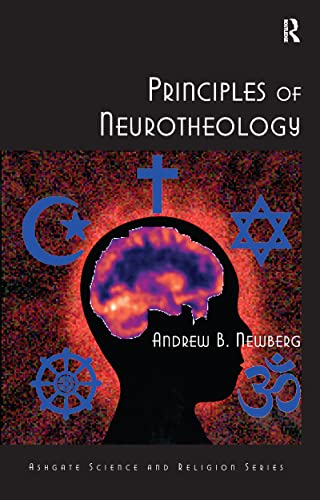What Is the Mission of the Church? Making Sense of Social Justice, Shalom, and the Great Commission
Written by Kevin DeYoung and Greg Gilbert Reviewed By Ed StetzerThe evangelical church is often engaged in important theological discussions. Given the impact that changes in our culture have had on the church, these conversations are expected and often needed. We anticipate that greater clarity and unity within the evangelical community would emerge, wherever possible, from these conversations. In a number of these conversations and debates, I have felt the need to participate, contributing in particular to our understanding of the mission of the church in the world. Many articles, books, and conferences have helped to shape where we are today on this topic, and most recently, Kevin DeYoung and Greg Gilbert have written What Is the Mission of the Church?
They plod through the biblical text in workmanlike fashion and have written a thorough and irenic book seeking to answer the title question. Much of the recent missional conversation and missiology in the last sixty years revolves around answering this basic question. DeYoung and Gilbert, through what they call “straight up exegesis,” locate the mission of the church in the Great Commission passages. “The mission of the church,” they conclude, “is to go into the world and make disciples by declaring the gospel of Jesus Christ in the power of the Spirit and gathering these disciples in churches, that they might worship the Lord and obey his commands now and in eternity to the glory of God the Father” (p. 62).
I appreciate the deliberate interaction with key passages of Scripture and found this to be one of the book's strengths—despite not following all of the exegetical conclusions. DeYoung and Gilbert are commended for not offering merely a collection of thoughts, nor an extended argument for what is or isn't “mission,” but rather a biblical exercise intended to strengthen the church. Nearly every conclusion they draw is based on exegesis, except for their treatment of social justice, where after defining justice biblically, they depend on certain economic theories and the practical principle of “moral proximity” to construct how we should think about this topic.
DeYoung and Gilbert should also be commended for the way they discuss the gospel, particularly Gilbert. Their discussion here demonstrates some development since Gilbert's What Is the Gospel? (Crossway, 2010). They are clear, nevertheless, that there is only one gospel and that it is often communicated from different perspectives, using the imagery of “zoom lens” to zero in on the center of the gospel or a “wide-angle lens” that pulls back far enough to see that Christ fulfilled all the hopes and promises in the biblical story. They note that the “wide-angle” perspective on the gospel is captured biblically with the phrase “gospel of the kingdom.” Gilbert and DeYoung argue, however, that regardless of the lens the call to repent and believe is always included, for the “gospel of the cross” is the fountainhead of the kingdom. Even if one expounds the nature of the “gospel of the kingdom” in different terms, their basic framework reflects the biblical teaching, that the “gospel of the cross” is central to the “gospel of the kingdom.” This is the right line to hold.
When they deal with the missio Dei they are careful to differentiate between it and the missio ecclesia, arguing that there are some things that only God does, that only God can do. His mission is different in certain ways from the mission he gave his church. They are right, I think, to define the idea of “mission” broadly as the “specific task or purpose that the church is sent into the world to accomplish” (p. 20). When they unpack precisely what the mission of the church is, they give a clear picture of the church sent in the power of the Spirit to make disciples by proclaiming the gospel.
Many will find their definition of the mission of the church too narrow. I do. With their definition, they underplay the relationship of secondary ministries to those in the community that are not immediately didactic and explicitly gospel revealing. In arguing that God's mission for the church does not include caring for the poor or intervening on behalf of those who are oppressed (good, God-honoring, and God-commanded), but making disciples through the proclamation, they overlook the role of work and example in discipleship. Rather, they equate “making disciples” with evangelism. Making disciples includes evangelism, but in “teaching everything Jesus commanded,” love and good deeds are also a part of the disciple-making process.
The mission of the church always must include making disciples, but the life of disciples will always produce work unique to its time and place, relating to the various needs and corruptions in the world around us. And such work is not only the fruit of discipleship, but is also, through modeling, part of the process of making disciples.
While they acknowledge that doing good works may help us personally “win a hearing for the gospel,” they do not adequately acknowledge the role of love and good deeds in commending the gospel to unbelievers in the ways Scripture does. Paul honors the church of the Thessalonians for how “the word of the Lord sounded forth” from them through their example in a “work of faith,””labor of love,” and “steadfast hope,” and he says there is no reason for him to say anything in the places where their witness and faith had gone forth (1 Thess 1:3-8). Probably the deeds that Paul celebrates in the church were accompanied by verbal proclamation, but he is sure commending them for how their “works” served to extol the gospel to the surrounding people. Then Peter instructs the church to watch their conduct so that others may “see your good deeds and glorify God on the day of visitation” (1 Pet 2:12). Because good deeds may extol the gospel to unbelievers, they can serve as the first stage of the disciple-making process.
Of course, I am not suggesting that verbal gospel witness is not essential (and even central) in the disciple-making process. So feeding the poor, for example, may come after verbal proclamation with respect to its ultimate role in fulfilling the church's mission, but it is essentially connected to the church's mission. The Scripture honors the way good deeds extol the gospel in the midst of unbelievers. Though DeYoung and Gilbert affirmingly quote Robert Plummer on this point, their argument appears to be distinct: Plummer, saying something very similar to the point I raise, states,”all the various segments of the Christian community are to live praiseworthy lives—not simply for the sake of obeying God, but because their behavior will commend or distract from the gospel” (p. 61; cf. Robert L. Plummer, Paul's Understanding of the Church's Mission: Did the Apostle Paul Expect the Early Christian Communities to Evangelize? [Eugene, OR: Wipf and Stock, 2006], 104-5).
DeYoung and Gilbert argue that it is important to clarify what Christians and the church must do and what we can do (pp. 21, 233, 234). This is a good point to make, and they do say that we may engage in secondary ministries as a local church. They see, however, these things as more disconnected from the mission than I do. They point to the command to “love your neighbor” as the best biblical call to these secondary ministries. I agree with this. Interestingly enough so would John Stott, whom they criticize for his treatment of John 20:21. What they leave out, however, is that this is not all Stott has to say regarding his theology for mission. He argues that the church's mission is everything they are sent into the world to do, which he says entails the “Great Commission” and the “Great Commandment.” Like Stott, Tim Keller also affirms a more expansive view of the Church's mission:”the 'mission of the church,' strictly conceived” is “the proclamation of the Word. More broadly conceived, it is the work of Christians in the world to minister in word and deed and to gather together to do justice” (Generous Justice: How God's Grace Makes Us Just [New York: Dutton, 2010], 216n128), which DeYoung and Gilbert cite, though in such a way where Keller's point is unclear (p. 231).
While I appreciate their “wide-angle” and “zoom-in” perspective on examining the nature of the gospel, their discussion on these points is tied unconvincingly to the question raised in this book. They suggest that the centrality of the “gospel of the cross” helps us understand why Jesus commissioned his disciples to make disciples. Sure, it can, but that would answer another question, for it does not make their point or eliminate other ways to conceive of the mission of the church.
Their approach to the gospel, with a wide-angle and zoom-lens focus, might have been helpful if applied to the mission. This is exactly what Tim Keller has done. The mission strictly speaking is proclaiming the gospel (necessary because kingdom work cannot take place unless it is done by people who have heard and responded to the gospel), but broadly speaking leads to discipleship evidenced in all areas of life. You cannot have the broad lens without the narrow lens (and the same is true of the gospel), but neither can you divorce one from the other or focus only on one or the other.
The same critique can be offered for their chapter on the storyline of Scripture, where they use the “zoom-in” view of the gospel to tell the “zoom-out” story of Scripture. Thus, for them, the story of the biblical narrative is, “How can hopelessly rebellious, sinful people live in the presence of a perfectly just and righteous God?”(p. 69). This is the question, they argue, that drives the biblical story. They make their case in two ways. First, they note that the biblical material from the Pentateuch to the apostles' preaching points to the cross. Second, they recall Jesus' last words to his disciples, saying, “if it is above all a story of how God has created and is creating a redeemed people who can receive the good gifts of living in his presence . . . then it should not surprise us in the least that Jesus would end His earthly ministry by telling His disciples, 'You will be my witnesses' (Acts 1:8)” (p. 69).
That their point is central to the story of the Bible should not be up for debate among evangelicals. But how we capture Scripture's storyline and answer what it is about is a live issue. Athanasius, Augustine, Calvin, Edwards, Piper, Carson, and countless others have all attempted to capture the message of the basic storyline of Scripture and have suggested something different than DeYoung and Gilbert. Granted, DeYoung and Gilbert do have Luther in their corner. It is not just that they offer a perspective that differs from others; rather the issue is recognizing that however one answers this question, it shall play a significant role on their theology of mission.
Christopher Wright, who is one of the few people that they cite, along with John Stott and Gabe Lyons, proposes a view of God's mission within a biblical-theological framework. He presents a missional hermeneutic for reading Scripture where the narrative captures God's message to glorify himself by making himself known. Wright argues that mission is incomplete without a cross-centered view of the work and the explicit proclamation of the gospel (The Mission of God: Unlocking the Bible's Grand Narrative [Downers Grove: IVP, 2006], 312-23). But, nevertheless, he puts forth a broader view of the mission, and is able to do so because he is working from a biblical framework that has the capacity to include all God is doing in the world through his people (Mission of God, 51). From this framework, Wright proposes a robust doctrine of creation and humanity's role in God's plan for creation through the revelation of Jesus Christ and calling of a people.
DeYoung and Gilbert miss this. Their doctrine of creation presented in this book is muted, stressing primarily the unique relationship between God and his image-bearers. In this discussion, they misread Wright's view of the value of humanity, saying he argues that we derive our value from being a part of creation (p. 70). Rather, Wright's view is that humanity derives value by being created by God, and later he argues also that humanity has unique value in God's good creation (Mission of God, pp. 399, 404-5). Creation, for DeYoung and Gilbert as it relates to mission, seems to serve as a preface to the story of how God remedies the alienation of sinful humanity. Thus, creation for them does not serve as a theological starting place for understanding the telos for all of history. Because of this, they do not consider the relationship between God's commission to humanity in Gen 1:27-28 and Jesus' commission to his disciples in Matt 28:18-19. The relationship that I am pointing to is not between the cultural mandate and the Great Commission but between God's purpose in creation and in redemption. Jesus sends the church to accomplish what Adam, Noah, and Israel failed to do in filling the whole earth with God's presence and the blessings that come with his presence (which G. K. Beale picks up in The Temple and the Church's Mission: A Biblical Theology of the Dwelling Place of God [NSBT 17; Downers Grove: IVP, 2004], 169).
Herein may be the book's greatest challenge. The authors list the books they read to prepare for this response to the widening of the mission. Yet reading a couple dozen books is simply not adequate (or appropriate) to prepare themselves to stand against the careful theological thinking that has contributed to the widening of our understanding of mission and the prevailing view of evangelicals (if Lausanne's Cape Town statement is a gauge).
DeYoung and Gilbert are not seeking merely to draw lines as to what the church cannot do and call it mission. They are seeking to establish a better footing for the church's life in the world. Their concern for the church is clearly stated and consistently demonstrated. This is a major reason they give for writing this book. They are concerned that “good behavior” is often commended based upon the wrong theological category; they are also wary of the force of “hard oughts” that have arisen with “the newfound missionary zeal.” Lastly, they anticipate that “secondary ministries” may in fact obscure the centrality of proclaiming Jesus for Christian mission (pp. 21-22).
I appreciate that they do not want redeemed people to feel the weight of “needing to do” something God may not have called them to do. Pastoral wisdom is necessary in these situations. I appreciate the commitment to preserve the centrality of Christ in the church and for the church. I also appreciate their wanting to protect Christians from feeling called to do everything.
But DeYoung and Gilbert address these concerns by seeking to distill theological building blocks and clarifying categories in order to “correct the missiological correction” of the past sixty years. Missiology is not a discipline that is served by distilling theological building blocks. It is best served by theological vision of how and why God sends his people into the world on mission for his glory and the good of people of the earth. A biblical-theological argument for the mission of the church requires a framework rooted in the narrative of Scripture that can connect creation, kingdom, redemption, and new creation to develop a robust vision for the mission of disciples in making disciples among all peoples.
The truth is the reins of the missiological conversation and the task of mission will not be pulled back by the arguments in this book. And while I understand their concerns about some of “the heat” in missiological rhetoric, the story of the mission of the church is that God continually uses prophetic voices to mobilize and inform his people to join the mission he has for his church. My suggestion is rather than pull the reins back, we adopt the posture Jonathan Edwards took in the Great Awakening, expressed in his book A Treatise Concerning Religious Affections. In the eighteenth century, the gospel was penetrating New England in ways that appeared new for the church, and to some, it caused concern. Edwards responds to this situation by writing a constructive theological treatise on how conversion to Christianity takes place—explaining the manner of the gospel's working. In a similar way and with such a spirit, we need to constructively find ways to clearly and faithfully articulate how God uses both verbal witness and the good deeds of his church to make himself known for the good of all peoples.
Gilbert and DeYoung have a different view than the prevailing approach in evangelical missiology. They believe the missio ecclesia is making disciples (X), with other actions and deeds (Y and Z) remaining distinct from X. Others (including most evangelical missiologists) see the missio ecclesia as YXZ, keeping X at the center but seeing Y and Z as essentially part of the mission. Gilbert and DeYoung, in my estimation, get the center of the mission (X), but have not properly worked out Y and Z's relationship to the fulfillment of the church's mission.
Ultimately, will the book be helpful? In some ways, yes—it will help people keep focused on proclamation and its central role in discipleship. That is a concern that I (and many others) have expressed in the missiological debate.
However, I think it ultimately will not succeed at its task. Instead, it will have some people needlessly looking to parse terms when the mission instead is more about faithfulness. Those who read and share the book may very well be those who most need a stronger missional focus—the theologically minded who think deeply but engage weakly. Yet those who could benefit from the book will not read it because the authors lack the background and engagement to make the case to the missional and missiological community.
Ed Stetzer
Ed Stetzer
LifeWay Research
Nashville, Tennessee, USA
Other Articles in this Issue
Evaluating a new English translation of the Bible can be extremely difficult...
In the November 2009 edition of Themelios, Dane C...
Jonathan Edwards (1703-1758) is remembered today as a saint, scholar, preacher, pastor, metaphysician, revival leader, theologian, Calvinist—the list goes on...
Almost two decades ago I wrote an essay titled " When Is Spirituality Spiritual? Reflections on Some Problems of Definition ...
He was the youngest son of elderly parents. His childhood was secluded and unhappy, which might in some measure account for his lifelong melancholy...







